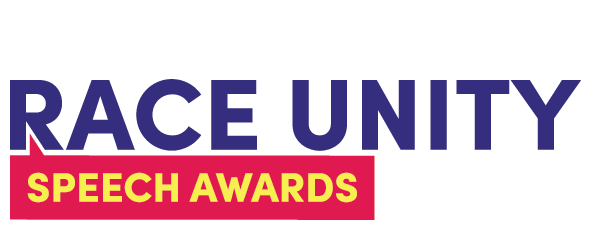English
Relevance to curriculum
Participation in the Race Unity Speech Awards has clear connections with the achievement objectives under ‘Speaking, Writing and Presenting’, including showing understanding of audience, developing ideas, using language features and organising text using effective structures.
Preparations for participating in the Speech Awards or the Race Unity Hui can also connect strongly with the ‘Listening, Reading and Viewing’ achievement objectives. As outlined in ‘Key documents’ above, preparations can include reading, analysing and discussing a range of texts related to race relations. The depth of the analysis and discussion can be tailored to the needs and abilities of the students.
Ideas for English classes
Oral text assessment– The Race Unity Speech Awards could be used as the basis for an internal oral text assessment (as per AS90857, AS91102 or AS91476). Help students think about the full range of topics they can explore by discussing the five ‘Questions for speakers’ in the speech topic document. Each student composes a speech addressing two or more of the questions in the speech topic and shares their speech with their classmates.
Language techniques – Another option would be for students to look at past speeches made for the Race Unity Speech Awards and analyse the language techniques used by speakers (speeches available on www.youtube.com/c/raceunity). Students could also attend the regional or national Speech Awards, reflecting afterwards on what speeches had the most impact on them, and why. This activity could inform students’ learning and preparation for other assessments.
Drawing connections between texts – Some of the key documents listed earlier in this pack may be suitable for internal assessments where students draw connections between different texts (AS90852, AS91104 and AS91478). Past speeches by national finalists in the Race Unity Speech Awards could also be used www.youtube.com/c/raceunity). These texts could be paired with more conventional texts that address race relations such as the novel To Kill a Mockingbird, the film Remember the Titansor the poem ‘A Pakeha Friend Tells a Maori Joke’ (Hone Tūwhare).

Social Studies
Relevance to curriculum
Participating in the Race Unity Speech Awards and the Race Unity Hui can help fulfil the following achievement objectives from Levels 6-8 of the Social Studies curriculum:
Understand how individuals, groups, and institutions work to promote social justice and human rights (Level 6).
Understand how communities and nations meet their responsibilities and exercise their rights in local, national, and global contexts (Level 7).
Understand how conflicts can arise from different cultural beliefs and ideas and be addressed in different ways with differing outcomes (Level 7).
Understand how policy changes are influenced by and impact on the rights, roles, and responsibilities of individuals and communities (Level 8).
Understand how ideologies shape society and that individuals and groups respond differently to these beliefs (Level 8).
Ideas for Social Studies classes
Race Unity Aotearoa Facebook page – The Facebook page for the Race Unity Speech Awards and Hui could be used by Social Studies classes in three main ways:
Source of resources – We will continue to post articles, clips and other content on this Facebook page throughout the year. Much of this content could be used as resources to study and discuss in class.
Space for posting and discussing ideas – Individual students or whole classes can post their ideas about how to improve race relations on our page using the ‘visitor post’ function. Students are also welcome to comment on posts and engage in discussion.
Space for sharing social action – We are also keen for students to share their social action projects related to race relations and ethnic diversity on our page. This may give students in other schools ideas about what sort of social action they can take.
Personal involvement in social action – Students could use their participation in the Race Unity Speech Awards as the basis for their ‘personal involvement in social action’ internal assessment (AS91042, AS91282 or AS91599). Students can be supported to understand how making a speech in front of an audience of peers, police officers, government officials and community leaders can contribute to social justice (for Level 1), rights and responsibilities (for Level 2) and policy change (for Level 3). Students could compare and contrast this kind of social action with more familiar actions such as protests and petitions. It may also be useful for students to consider how their participation in the Speech Awards contributes to the national conversation about race relations and plays a part in a long-term process of social change.
Participation in Race Unity Hui– Participating in a Race Unity Hui could be a valuable class activity for deepening understanding of racial prejudice and institutional racism as social issues, and for exploring different ways of effecting social change. The class could prepare for the Hui by exploring the concepts of race, unity and justice; and by discussing the five key questions in the speech topic [need link]. Following the Hui the class could reflect on what they learned, and how their participation in the Hui contributes to social justice, rights and responsibilities or policy change. The Hui may also give students ideas about social action projects they would like to undertake for their ‘personal involvement’ internal assessment, or questions they would like to explore in their ‘social inquiry’ assessment.
Social Inquiry Assessment –Students’ participation in the Race Unity Hui or Speech Awards could support their internal social inquiry assessment (AS91040, AS91280 or AS91597). Participation in the Hui can provide students a rich source of perspectives and questions around race-related issues to support the social inquiry process. The Speech Awards also provide a valuable space for students to share their inquiries orally to wider Aotearoa, with the potential for media coverage. This can provide a real-world connection for the students’ assessment.
Next